Elina Rindle | University of South Carolina | International Business and Management Consulting (IBEA cohort) Singapore | IB Exchange | ESSEC Asia-Pacific
Don't wanna be here? Send us removal request.
Text
Our journey, then, led us to Krabi, a captivating province in Thailand that left a lasting impression. Thailand, often referred to as the "Land of Smiles," showcases a vibrant culture that has remained unconquered by European colonization. This part of our trip was dedicated to exploring the natural wonders that this country has to offer.

To navigate the region efficiently, we opted for day tours, which proved to be a practical way to experience the area. One of the notable stops was the Emerald Pool, a popular attraction bustling with both tourists and locals. Adjacent to the Emerald Pool, we discovered the Blue Pool. Unlike its swim-friendly counterpart, swimming was prohibited in the Blue Pool due to its delicate ecosystem. Nevertheless, we admired the tranquil beauty of its vibrant blue waters.
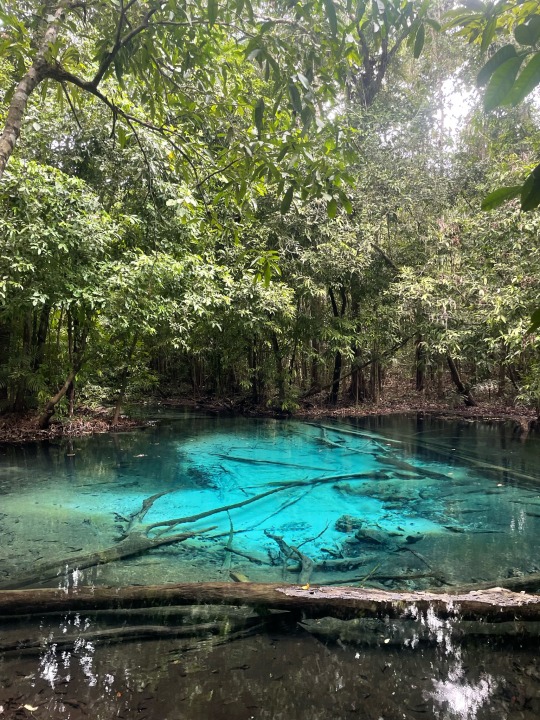
One of the more physically demanding aspects of our trip was ascending over 1,300 steps to reach the summit of a mountain. The climb proved to be an arduous challenge, testing our endurance and stamina. However, the reward awaiting us at the top made it all worthwhile. As we caught our breath, we were greeted by an impressive temple and a breathtaking panoramic view. The sense of accomplishment and the stunning vista combined to create a memorable experience.


Among the various tours we embarked on, my personal favorite was our visit to the Hong Islands. Traveling by speedboat, we spent the entire day hopping between small islands, each boasting secluded and relatively untouched beaches. Whether snorkeling in the crystal-clear waters, sunbathing on pristine sands, or simply appreciating the surrounding natural beauty, the day unfolded as a blissful retreat. Our animated tour guide added a touch of fun to the experience, ensuring laughter and beautiful memories throughout the day.
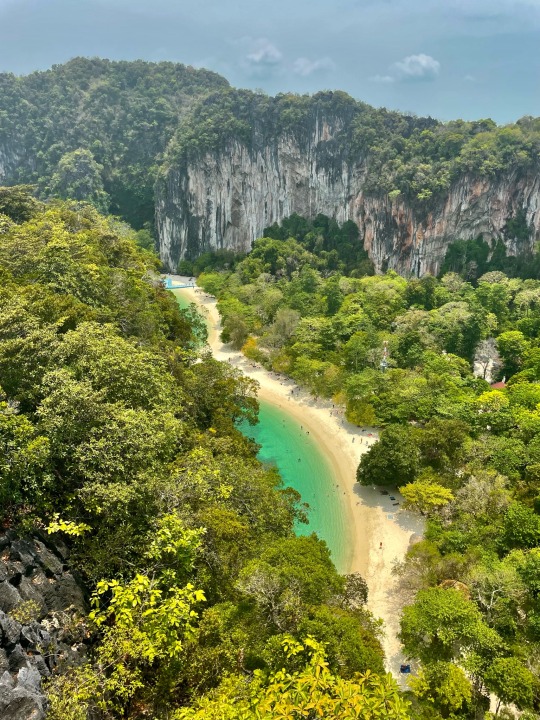
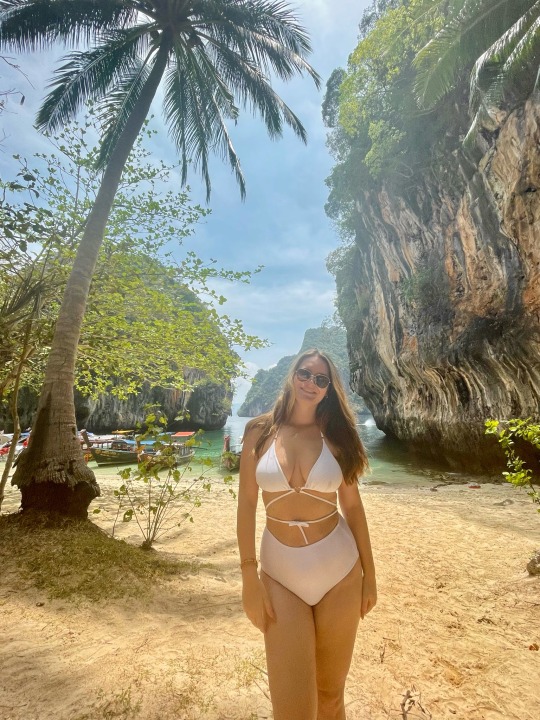
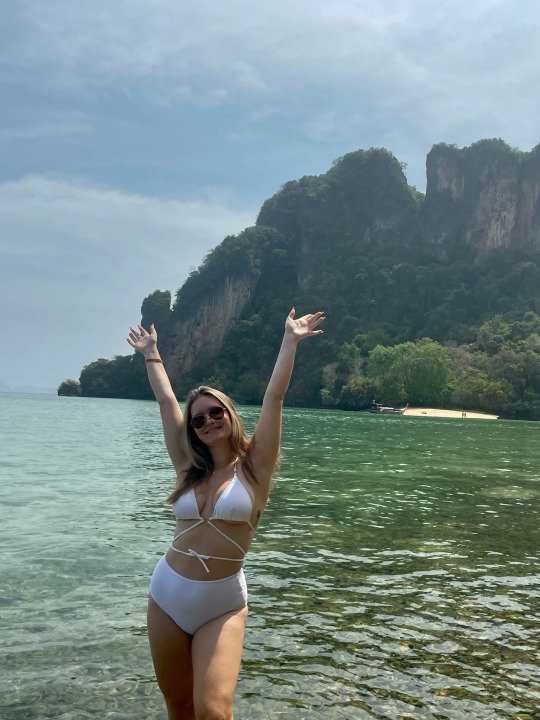
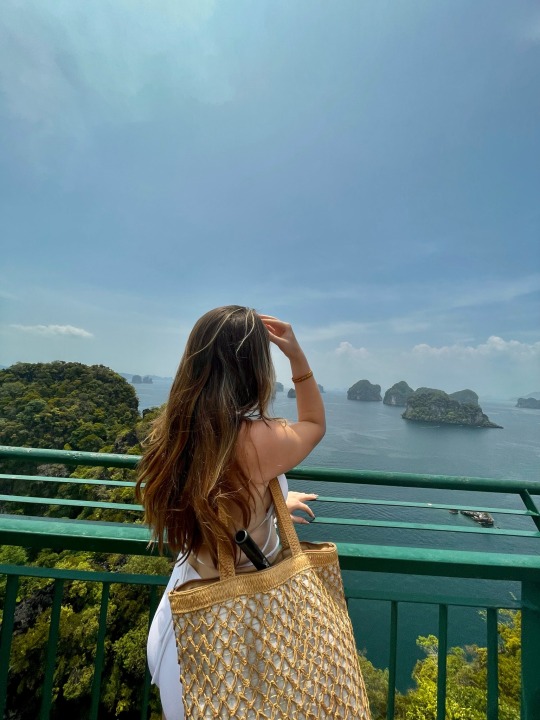
Krabi, Thailand, revealed a world of wonders that allowed us to immerse ourselves in both the cultural heritage and the awe-inspiring natural landscapes. Each day tour provided a glimpse into the remarkable beauty of this region, leaving us with cherished memories and a profound appreciation for the unspoiled charm of Thailand.

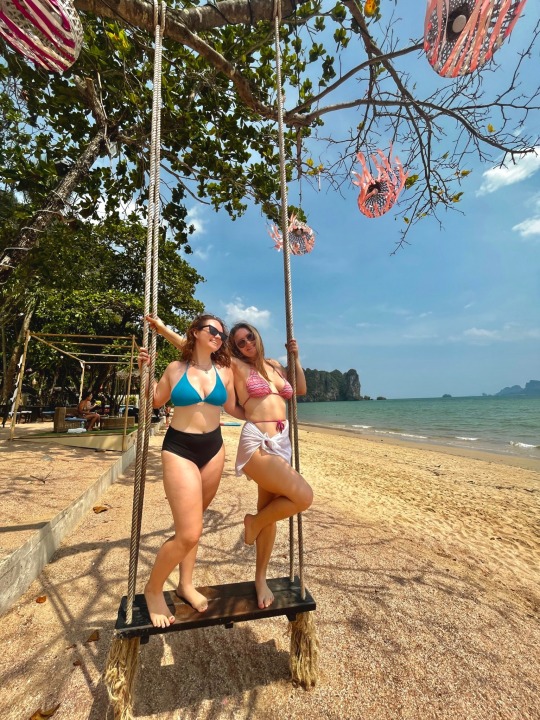
2 notes
·
View notes
Text
Our next stop was Siem Reap. We took a 6 hour bus from the capital to Siem Reap and one could instantly see the difference between the two cities. Due to its many cultural and ancient attractions, Siem Reap is built much more western and developed compared to its capital counterpart. It is obvious that because of the larger revenue of tourism, it receives a lot more of the funding.


While in Siem Reap, we got to enjoy a tour of a floating village, which add the time that we visited (dry season) was in fact not floating. The tour guide, Tom, originally came from a similar village and therefore was able to give lots of helpful insights while showing us around. One thing I noticed especially here is how forthcoming the villagers were. Because their livelihood depends on the revenue from the tours, they are very friendly with us and we even spoke with a class of students that were learning English so that they could practice. I loved this experience because I really felt like I got the real insight into what life in these villages look like and I knew exactly where my money was going.


The next morning, we started our day with a sunrise tour of Angkor Wat which is an impressive archaeological site and a testament to the architectural and engineering prowess of the Khmer Empire. This massive temple complex, built between the 9th and 15th centuries, stands as a remarkable historical relic rather than a mystical wonderland.

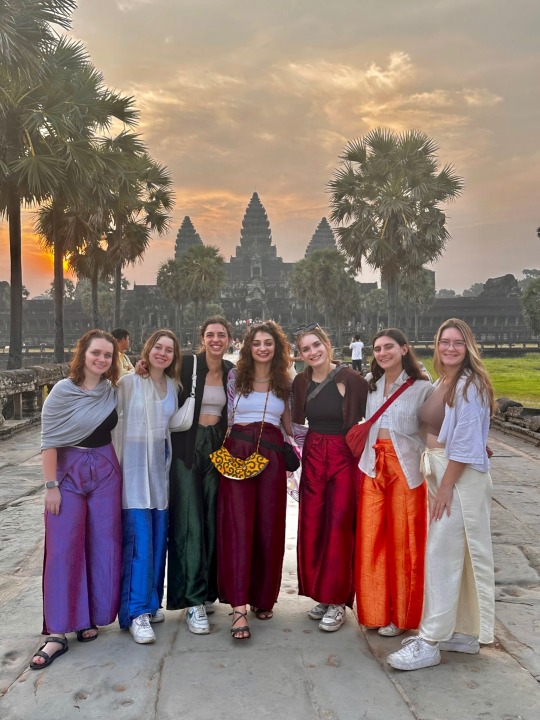
Approaching Angkor Wat, you'll notice its sheer size and the scale of its construction and as you explore the temple complex, you'll witness the remnants of a once-thriving civilization. The main structure of Angkor Wat consists of a series of courtyards and galleries, built with sandstone blocks. The walls are adorned with bas-reliefs depicting scenes from ancient myths, historical events, and everyday life during the Khmer era. While some of these carvings have withstood the test of time, many have suffered from erosion and damage.
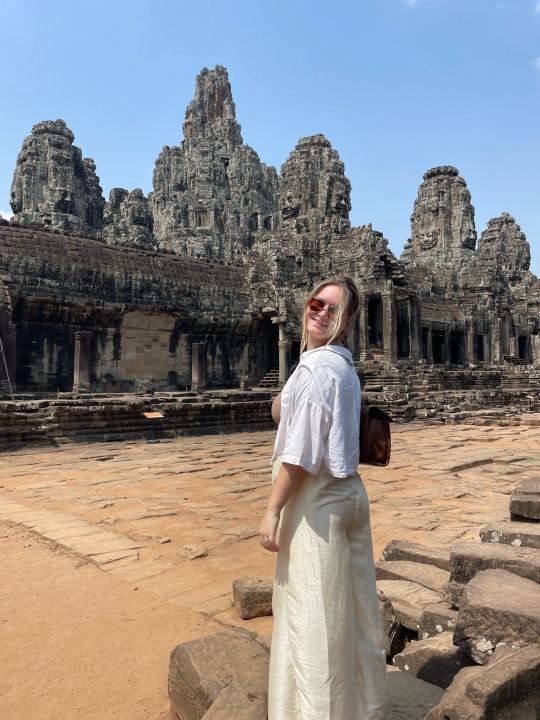
Around where the temple lies, many other temples have also been erected that may not meet its impressive sight but definitely where as historically important.
2 notes
·
View notes
Text
First stop on our spring break trip was Cambodia! To be honest the country was not the first thing you may think of when you consider traveling the charming Southeast of Asia but I am more than grateful I had the chance to visit this country with such a rich and troubling history and I truly feel like I learned the most during my time here.
We started our trip in the capital city, Phnom Penh which presents a contrasting landscape that reflects the country's complex history and current socioeconomic conditions. As you explore the city, you'll witness a mix of bustling streets, modest neighborhoods, and pockets of modern development. The main and cheapest means of transportation for tourists are tuktuks and I noticed that there are almost no rules (or at least none followed) on the streets. At some point or driver even casually started driving on the wrong side of the street into oncoming traffic. In terms of infrastructure and urban planning, Phnom Penh may not boast the gleaming skyscrapers and polished cityscapes of other Asian capitals but it showcases its history. While there are some pockets of affluence, it's true that poverty and inequality are evident in certain areas of the city. The local markets showcase the daily struggles and entrepreneurial spirit of the people, with vendors selling everything from fresh produce to clothing and household goods. These markets can be crowded and chaotic, but they offer a glimpse into the realities of everyday life for many Cambodians.
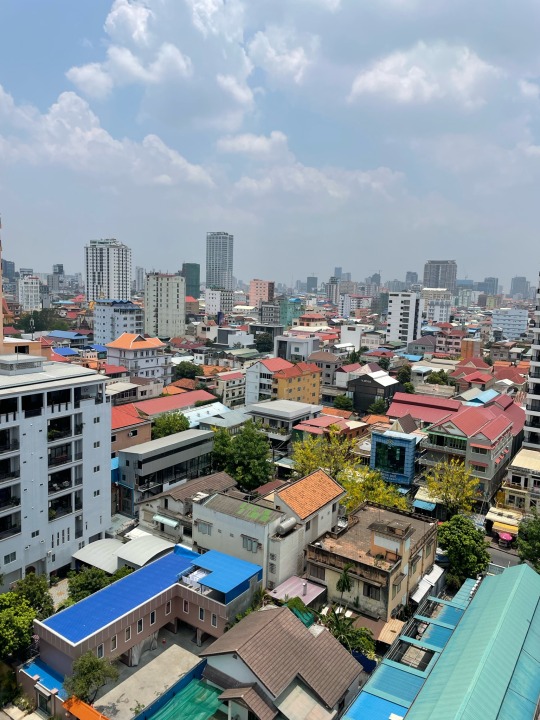
Some interesting places we got to see where the national museum as well as the royal palace. We also did a cruise on the river to see more of the city by the shore.
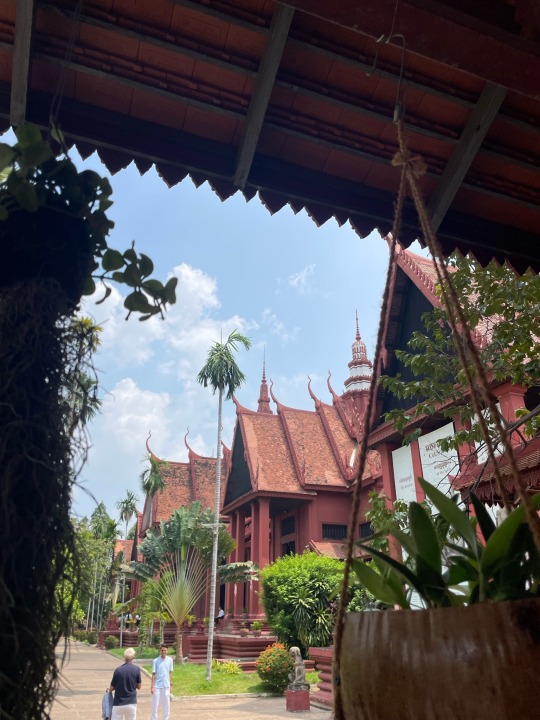
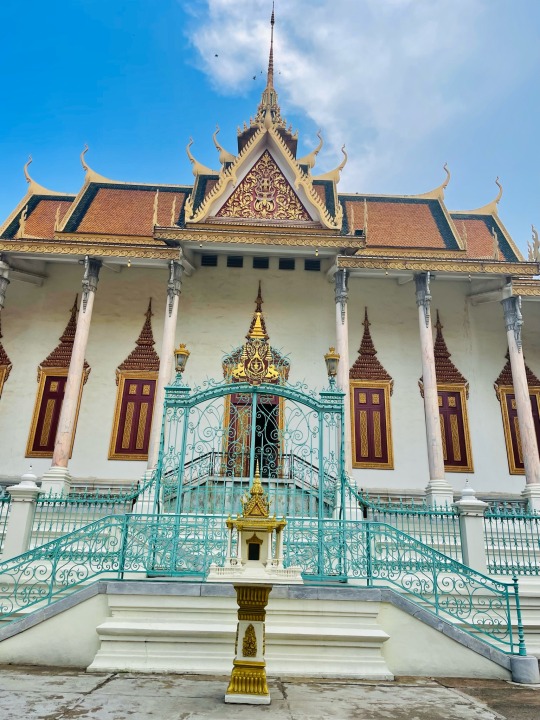
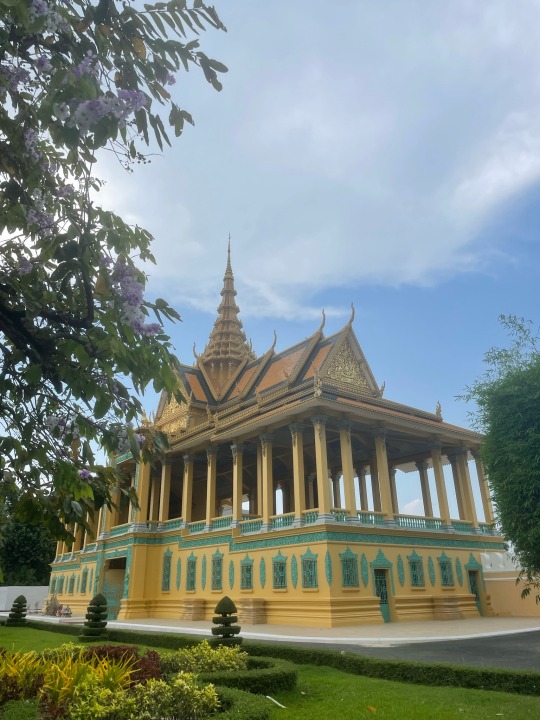
You quickly come to realize that Phnom Penh bears the scars of a turbulent past, particularly during the Khmer Rouge regime, and remnants of that era can be seen at sites like the Tuol Sleng Genocide Museum and the Killing Fields. These places offer somber reminders of the atrocities that took place and evoke a sense of reflection and solemnity. I highly recommend purchasing the audio guide for another $3 because it does a fantastic job at making you feel the sorrow of the place and how it still affects Cambodia today and allows you to empathize with the victims.
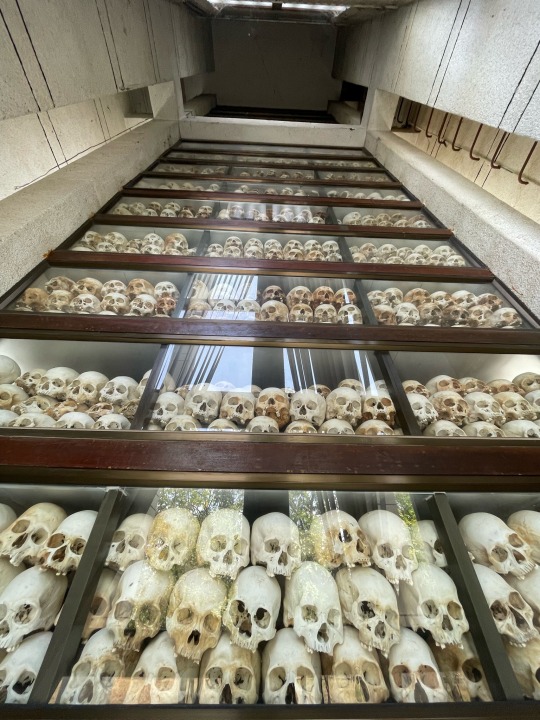
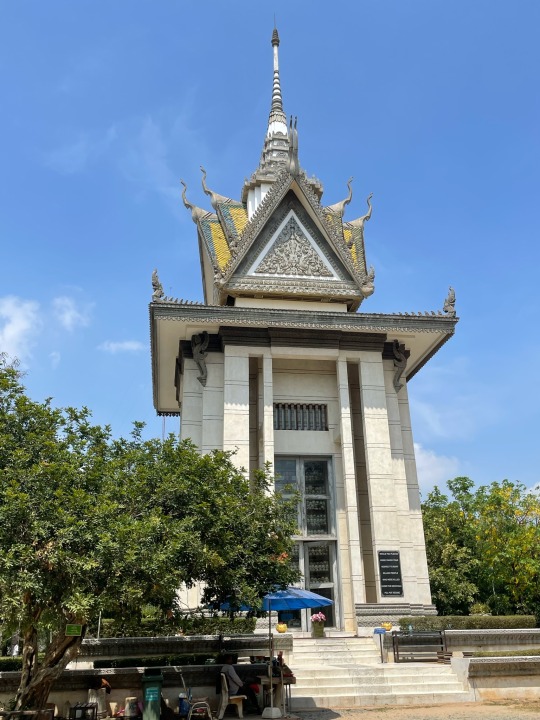
Phnom Penh does have a growing dining scene, where you can find a range of local and international cuisines to suit various tastes and budgets. From street food stalls serving Khmer delicacies to restaurants offering a fusion of flavors, there are options available to explore and savor the local culinary offerings. While Phnom Penh may not offer a glitzy and extravagant nightlife scene, there are establishments where locals and tourists alike gather to unwind and socialize. Riverside bars and cruises offer a chance to relax and enjoy the picturesque views along the Tonle Sap and Mekong Rivers.
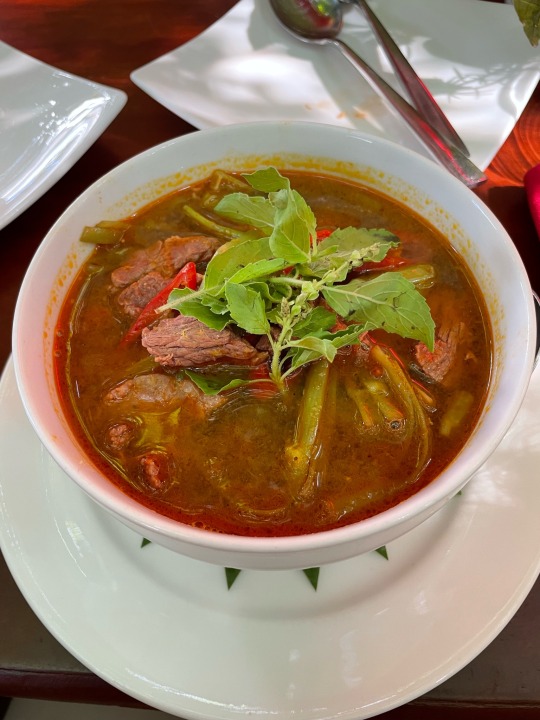
It's important to approach a visit to Phnom Penh with an open mind and an understanding that Cambodia is still in the process of development and recovery especially with its government. The locals that we had the opportunity of speaking with are very aware of the faults in their system but they recognize the growth their country is going through. By embracing the city's complexities and engaging with its history and people, you can gain a deeper appreciation for the challenges and triumphs that have shaped Phnom Penh into what it is today.
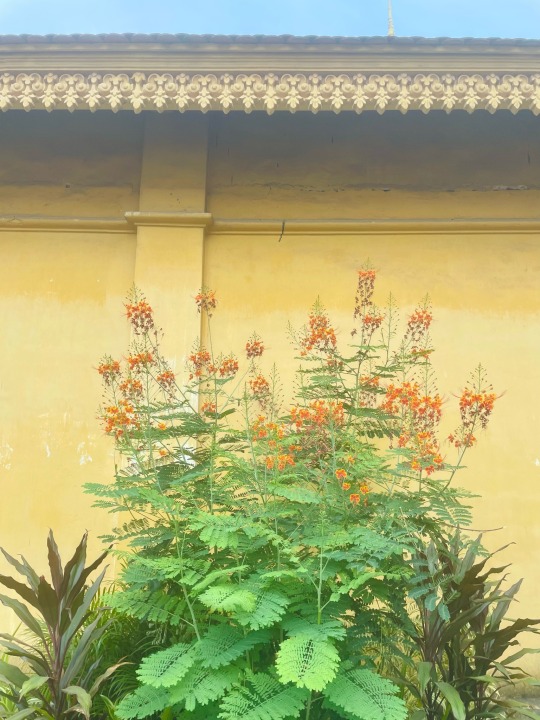
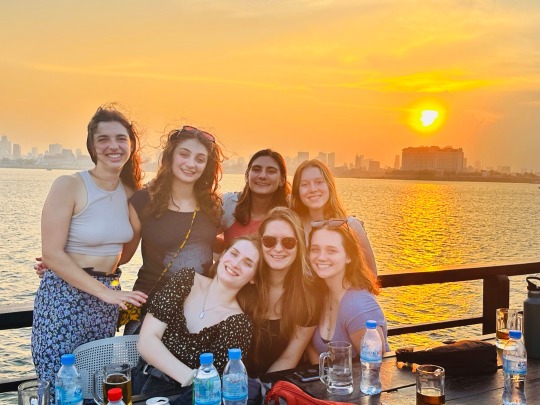
2 notes
·
View notes
Text
Hello everyone,
Another fantastic thing about Singapore is how easy it is to travel. The small country really isn’t only a hub for trade but also for commercial flights going all over Southeast Asia and Oceania. Coming back from my hiatus I present to you in the next few posts my travels in the past month that have kept me from blogging while I was soaking up the rich culture of the Cambodia, Thailand and Indonesia.
2 notes
·
View notes
Text
Tumblr only lets me post 10 photos so here are some more pictures and videos of the gardens by the bay!







2 notes
·
View notes
Text
While Singapore is known more for being a vibrant, modern city the country also has some incredible nature to offer. A little after gaining full independence from Malaysia, Singapore started expanding and making tremendous changes which came at the cost of the environment. Since then, the government has made a large effort to preserve and improve the areas of nature that still exist in Singapore as well as artificially incorporate plants into new and existing architectural structures to give the impression of a city in nature.
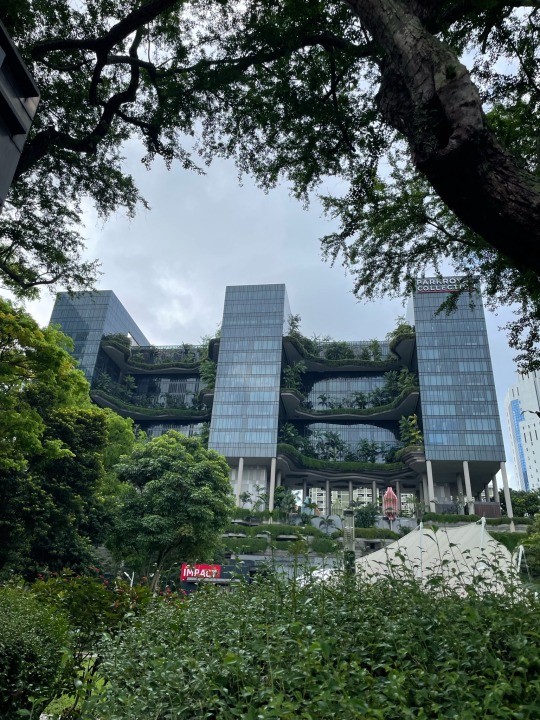

Here are some parks where you can find beautiful nature in Singapore:
1. Fort Canning Park is a historical park located in the heart of Singapore, walking distance from Boat and Clarke Quay as well as Marina Bay. The park is home to a variety of trees, plants, and unique wildlife, including a special rooster (Go Cocks!) and supposedly even monkeys (though I haven’t seen any). Additionally, the park is home to the newly built Fort Canning Heritage Center, which hosts a free museum of the parks and Singapore’s history and is a wonderful way for visitors to explore the country’s history. Particularly interesting for me was how recent some of the historical findings were and how much of a deeper history there may be to still discover. I have talked about this park before in this blog but wanted to showcase it again because I think it’s truly is such a beautiful place in the midst of downtown Singapore.
2. The Botanical Gardens is a UNESCO World Heritage Site and one of Singapore's most popular tourist attractions. It is a sprawling green oasis that is home to over 10,000 species of plants and trees from all over the world. The park includes many themed areas, such as the National Orchid Garden, the Ginger Garden, and the Rainforest. The orchid gardens are the only portion of the park that you have to pay for but definitely bring your student ID to pay S$3 instead of S$15. The Rainforest is home to a few endangered species that only exist there such as the slender squirrel or a specific type of snail and many more. I have personally been to the Botanical Gardens for picnics, and walks, but there are also frequent outdoor concerts.

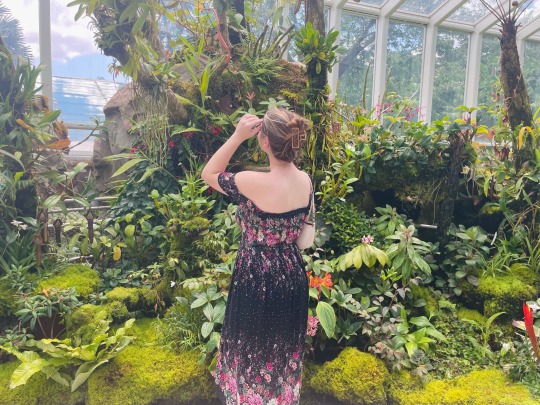
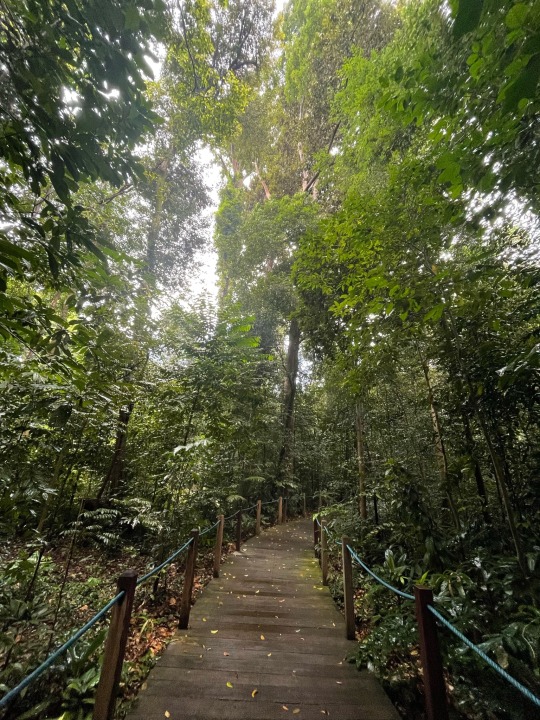
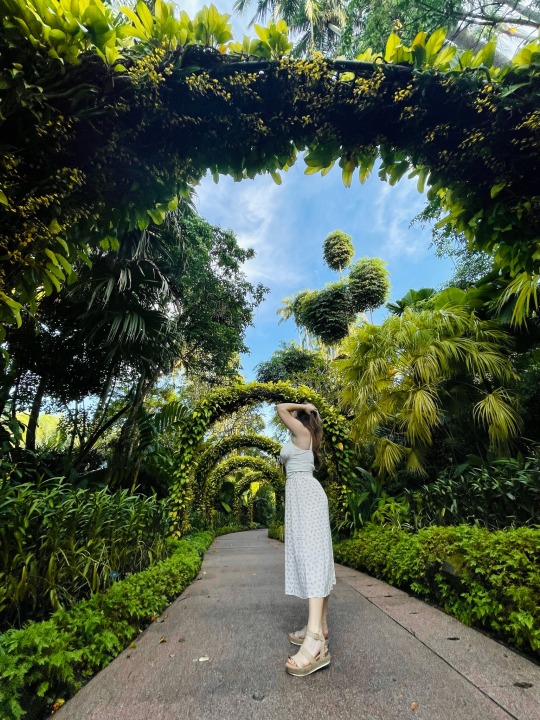
3. Sentosa Island is a tropical island paradise located just off the coast of Singapore. It is home to several (man made!) beaches, nature trails, and wildlife sanctuaries. Visitors can explore the island's many attractions, including the S.E.A. Aquarium, the Universal Studios theme park, and the Sentosa Nature Discovery. The island is also home to several luxury resorts and restaurants, making it the perfect destination for a relaxing getaway. I would definitely say Sentosa is more of a touristy location and you can tell that the nature is more so artificial there.

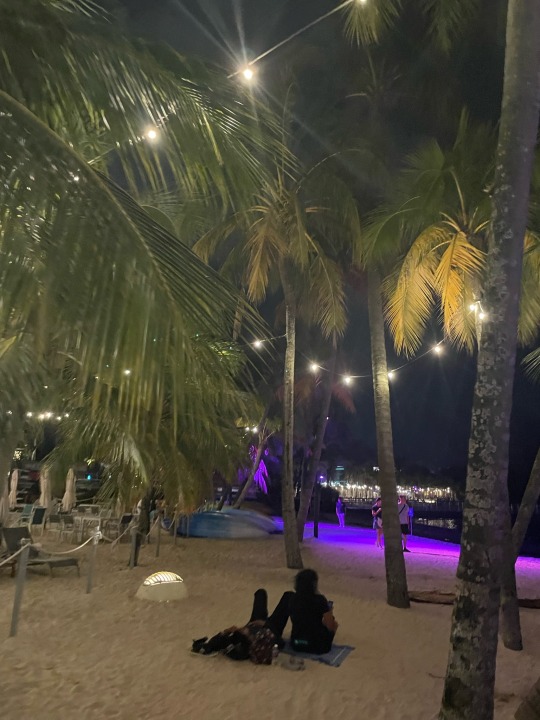
4. Gardens by the Bay is a stunning futuristic park that features some of the most innovative and sustainable architecture in the world. The park is home to over 500,000 plants from all over the world, including the iconic Supertrees, which are towering vertical gardens that are over 16 stories tall. There are also themed gardens, including the Flower Dome, the Cloud Forest, and the Sun Pavilion. I have personally been to the first two and preferred the Cloud Forest. They currently have an Avatar feature going on which adds a few interactive experiences to the exhibit such as seeing yourself as an Avatar, flying a mountain banshees and many more. The Supergrove Tree Garden is beautiful during the day but really becomes breathtaking during the evening when the trees are lit up. The Gardens by the Bay Symphony creates new music for light shows every month that are held every night at 19:45 and 20:45 and they are definitely a must see. To get the full experience, I recommend getting there early to find a spot under one of the trees to see the light show from below.


5 notes
·
View notes
Text
Kuala Lumpur, the capital of Malaysia, is a vibrant and bustling city that is rich in history, culture, and delicious food. I recently had the opportunity to visit Kuala Lumpur with some of my friends and explore some of its famous landmarks and attractions. In this blog post, I'll share with you our itinerary for the three-day trip to Kuala Lumpur, including some of my favorite experiences and additional impressions.
Let’s start with transportation. Night buses are a common way of traveling between bordering countries in Southeast Asia, so we decided to give it a shot for the travel to Malaysia as it was the cheapest option and would simultaneously allow us to explore the city for three full days and save on two nights of hotel costs. The 6-hour ride was fairly comfortable, the seats went almost all the way down to a lying position and were fairly large for Asian standards so we had plenty of room to sleep. On the way there we passed through two immigration checkpoints relative,y early in our trip, which due to the late hour went quick and smoothly.
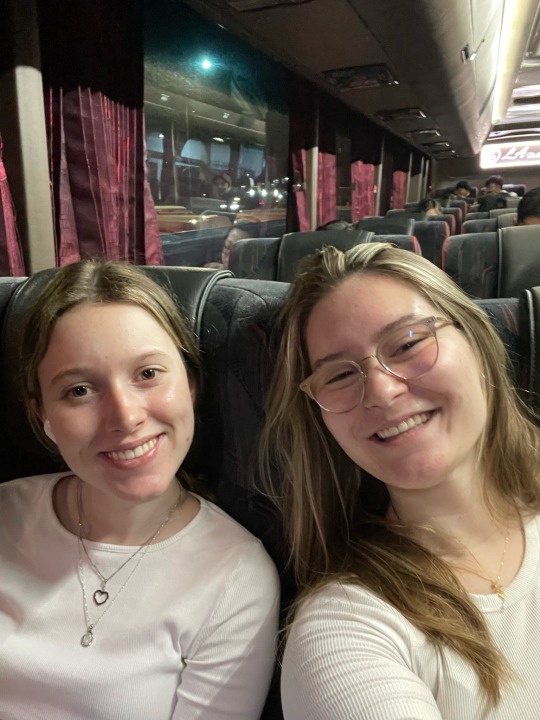
Day 1:
On the first day of my trip, we visited the National Museum of Malaysia, also known as Muzium Negara. This museum showcases the history, culture, and traditions of Malaysia, and is a great way to learn about the country's past. The entrance fee was only $1.5, making it an affordable and educational experience. As we got there super early, we even got a private tour from a very sweet lady that volunteers at the museum to give hourly tours.
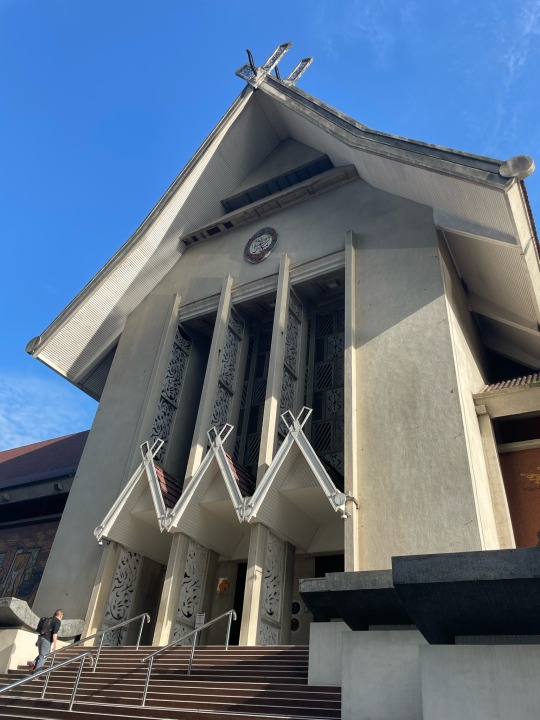
After the museum, we visited the Perdana Botanical Gardens, which is a peaceful oasis in the middle of the city. The gardens are home to a variety of plants and flowers, as well as a lake, a bird park, and a butterfly park. It's a great place to relax and escape the hustle and bustle of the city.
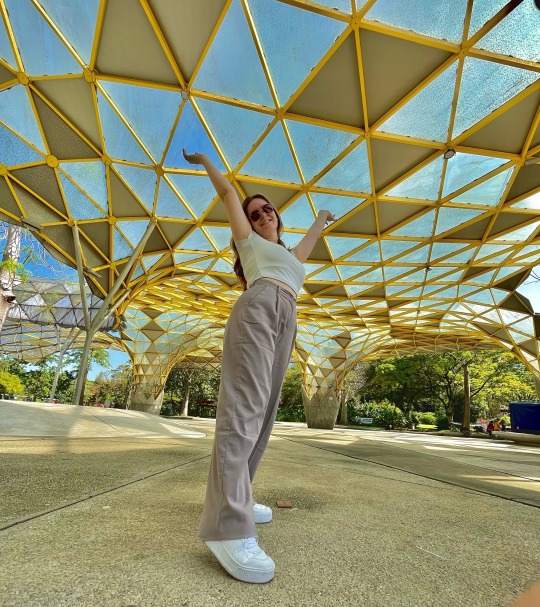
Next, we visited the Islamic Arts Museum, which is located near the Perdana Botanical Gardens. This museum is dedicated to Islamic art and artifacts from around the world, including calligraphy, textiles, ceramics, and weapons. The entrance fee was only $1, which was an amazing value considering the quality of the exhibits.
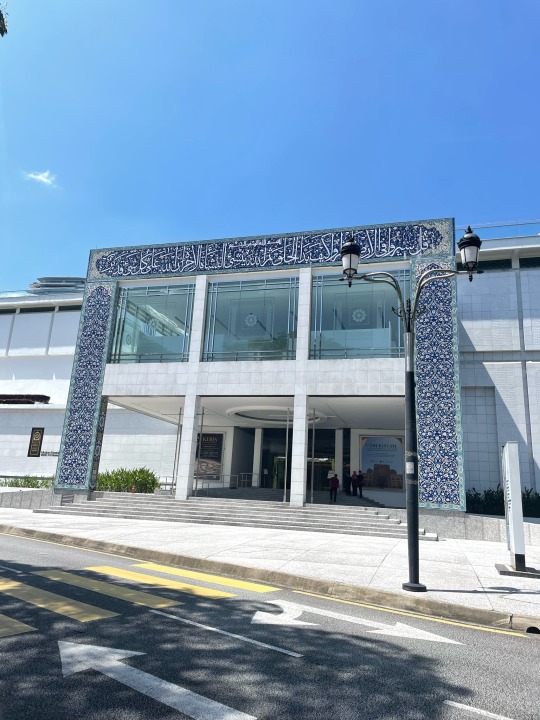
Finally, we headed to Petaling Street, which is a famous shopping destination in Kuala Lumpur. Here, you can find everything from designer dupes to souvenirs and street food. It's a great place to haggle and get some bargains.
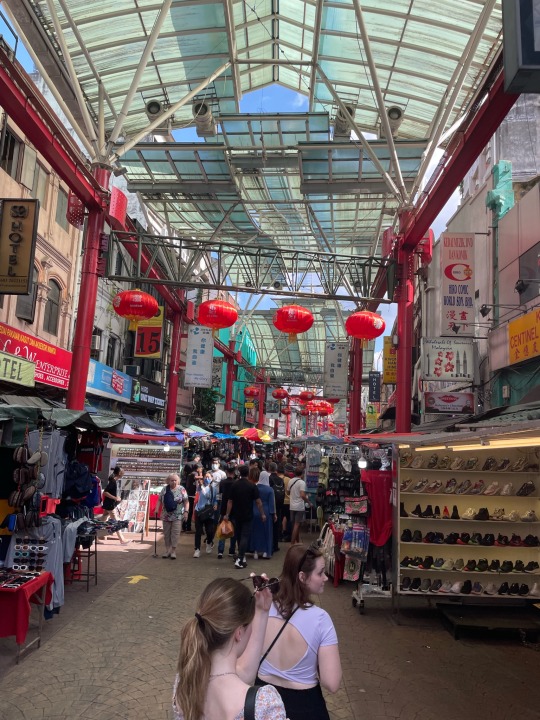
Day 2:
On the second day of my trip, we visited the Batu Caves, which is a series of limestone caves located just outside of Kuala Lumpur. The caves are home to a Hindu temple and are also famous for the many monkeys that live there. The entrance to the caves is free, but be prepared to climb a lot of (colorful!) stairs to reach the top. We took a bunch of beautiful pictures here, including some videos with a drone that one of my friends brought on the trip. We spent most of our day exploring the caves, its history and additional exhibitions.
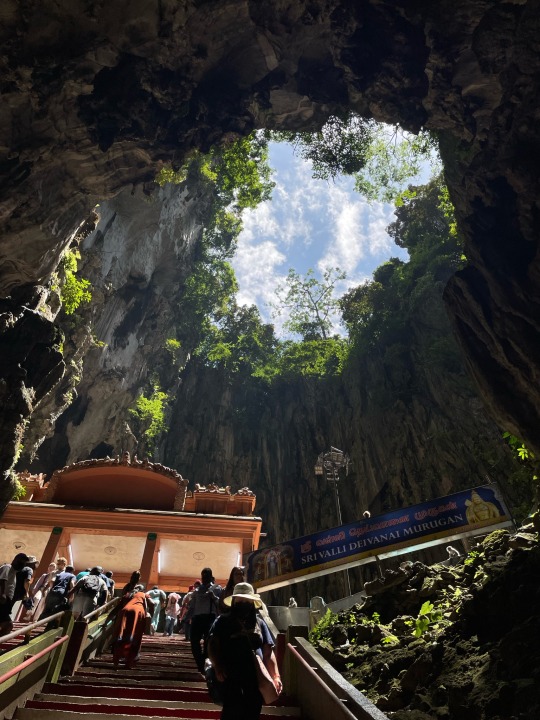
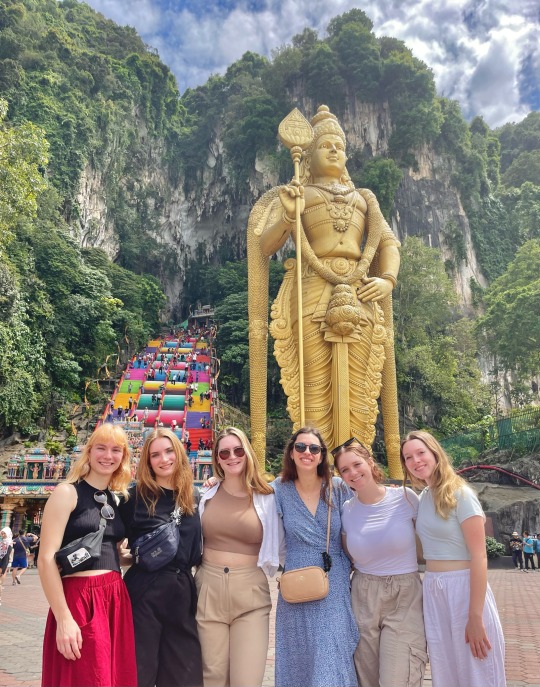
After the caves, we visited Jalan Alor, which is a famous food street in Kuala Lumpur. Here, you can find a wide variety of Malaysian and international cuisine, from street food to upscale restaurants. Recommended to us by locals, we also visited a bar with live music and later another one with pool tables, which was a great way to end the day.
Day 3:
On the final day of my trip, we visited the Thean Hou Temple, which is a beautiful Chinese temple located on a hill overlooking Kuala Lumpur. The temple is dedicated to the goddess Tian Hou and is decorated with ornate carvings, statues, and lanterns.
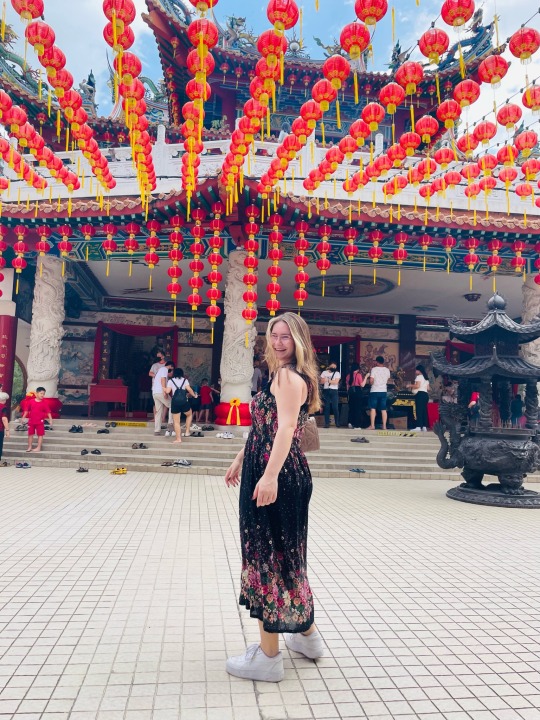
After the temple, we walked around the city center and visited some of the famous landmarks, such as the KL Tower and the Petronas Towers. Instead of paying to visits the top of one of the tallest buildings, we rather decided to visit the Heli Pad bar, which is located on the roof of a building and offered breathtaking panoramic views of the city. To get to the rooftop you only need to pay $23 which pays for both the entry fee and two free drinks which were very delicious!
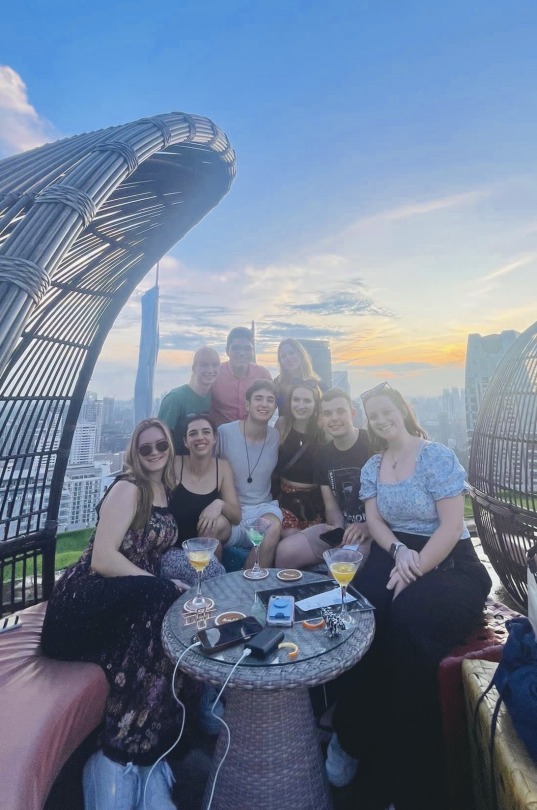
Overall, the trip to Kuala Lumpur was enjoyable, but it was also more stressful than I expected. The city is much more crowded and chaotic than nearby Singapore, which can be overwhelming at times. However, the currency (RM) is fairly cheap compared to the US dollar, which made everything including food, transportation and shopping more affordable.
2 notes
·
View notes
Text
Let’s talk coffee! Coming to Singapore, my perception was that tea would play a large role here as it does in many other Asian countries. I couldn’t have been more wrong! Singaporeans absolutely love their coffee, which is called Kopi locally, and will drink up to 4 cups a day. Kopi comes in many forms which had me confused for a while so here’s what I have learned so far. Kopi is different from western coffee in the sense that the beans are prepared differently. They are heated with butter and sugar but never burned which gives them a much more aromatic and creamy flavor. Next, Kopi is served with condensed milk. Throughout Singapore’s history as a trade hub, fresh milk was not readily available so condensed milk as a canned good became the norm in coffee and this has not changed since. There are many ways to order your coffee but these are the main ones you need to know to order the Kopi you want:
1. Kopi: coffee with sweet condensed milk
2. Kopi C: coffee with sugar and unsweetened condensed milk (add Kosong for no sugar)
3. Kopi O: coffee with sugar, no milk (add kosong for no sugar)
Kopi has been one of my favorite surprises so far and it’s great to get an iced Kopi on the go as a cheap alternative (<3SGD) to Starbucks and most other iced coffees. So when you come to Singapore, don’t order a cup of coffee, order your preferred version of Kopi :)

Here’s a cool tote bag that my friends and I found at a local art boutique fair, which explains some other ways to order Kopi as well:

2 notes
·
View notes
Text
If I had to choose one thing, that I love about Singapore so far it would definitely be the cultural variety of the food here. In Geylang, there are a lot of different types of restaurants, many of which are very easily accessible either take away or sometimes with small seating areas. Most of the food is extremely cheap with very decent portions so trying out new places and dishes has been one of our favorite things to do here so far. Generally, you can buy food in hawkers (outside food courts) which offer the cheapest options or food courts in malls (air conditioned!) which is a bit more expensive but still very cheap compared to eating out in the US.
Today I thought I’d create a breakdown of some of the food I have tried so far:
1. Noodles with various meats: from duck, pork and chicken to duck beaks, chicken feet and pig noses you can get pretty much anything in Singapore but one of my staples so far has been dry/fried noodles with some type of meat.
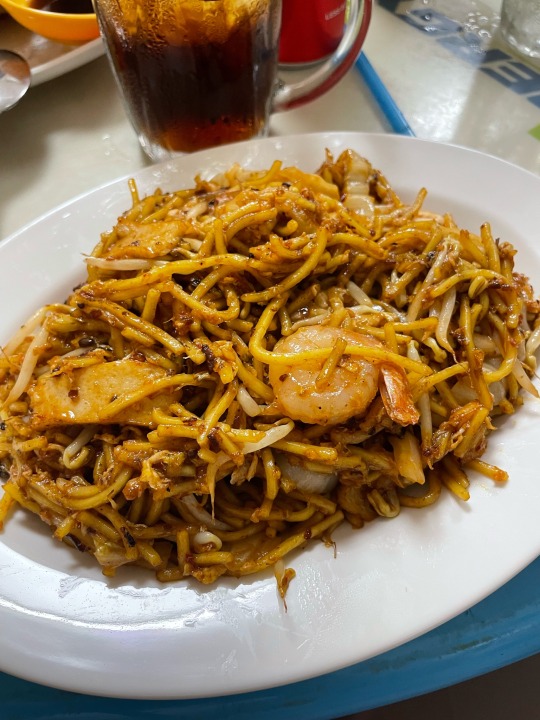
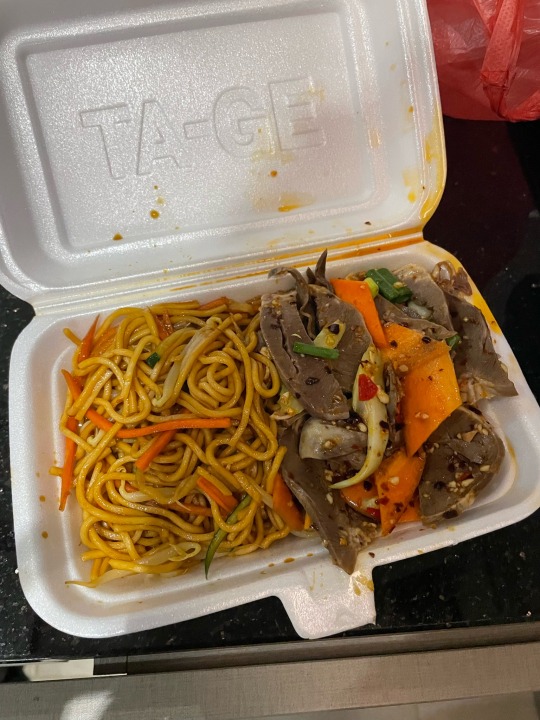


2. Sweet and sour pork: coming from the US, I was very much on the level of Americanized Chinese food and this dish of sweet and sour pork was actually the closest to what I am used to.
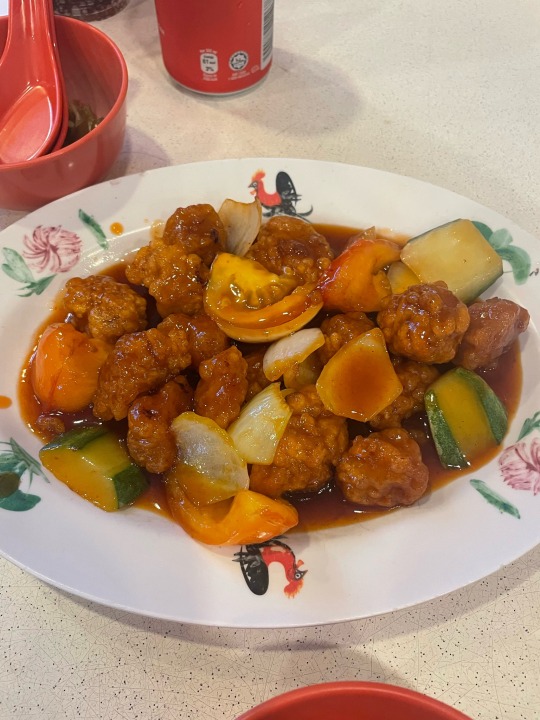
3. Poke bowl: if you know me, you know I love poke bowls and this one was absolutely delicious even though it was more in the higher price range compared to most foods in the hawkers
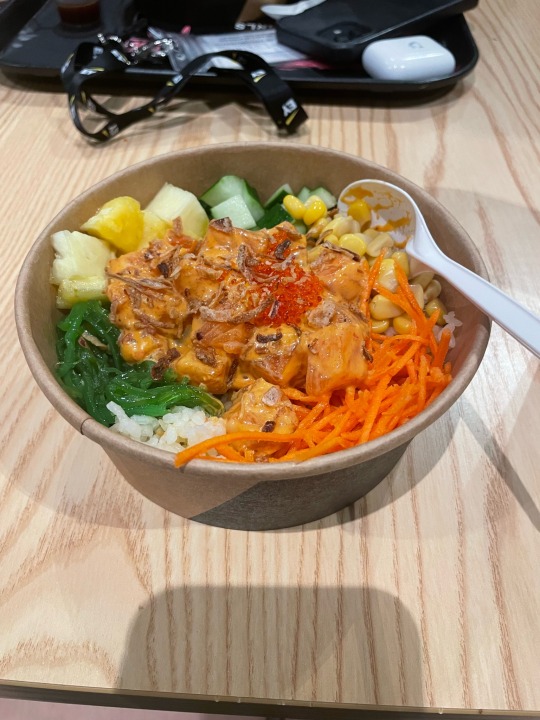
4. Curry: I ate this delicious Indian meal at the Marina Bay sands mall, which was very good though spicier than what I’m used to!


I am now also starting to eat more at home now that I have a kitchen and am eating a lot of fresh fruits like mangoes, bapples (I don’t know what these are actually called but they’re a mixture of an apple and a pear) and dragonfruit. We try to keep our fruit bowl in the living room stocked at all times!
There are many stores that sell fresh fruit and vegetables and we discovered this giant wet market in Chinatown that sells literally anything fresh.
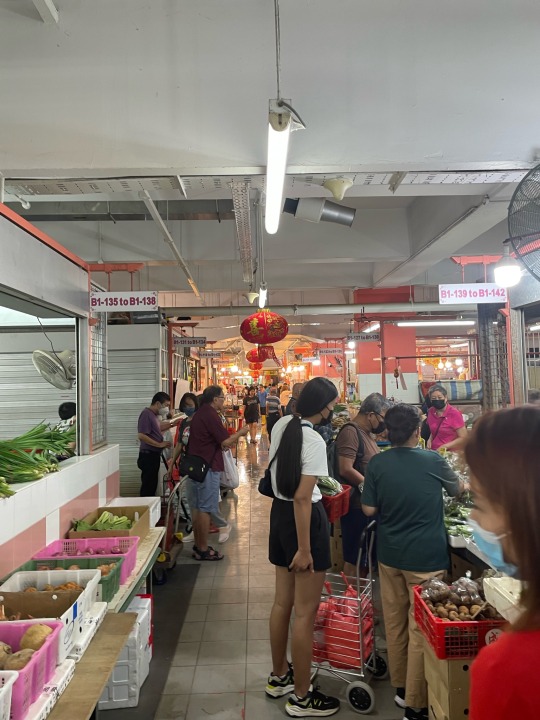
But our favorite so far is the fruit store on the way home from the MRT station that sells different fruits and restocks almost every day!
6 notes
·
View notes
Text
Since I last wrote I moved into my place, which is very spacious and nicely decorated. As previously mentioned, housing was a bit of a pain so we were pleasantly surprised with how seamlessly we were able to move in. We rent our space through Dash living and they have been very helpful and quick so far with responding to maintenance issues such as air conditioning and Wi-Fi connectivity.


The condo is in a small gated community with a small gym, several pools and community events even. The location is very advantageous because we live right next to a food hawker and an entire street of small food and grocery shops as well as anything else your heart desires but our walk to the closest MRT station is also only 7 minutes. This makes it very convenient to get to uni even tho we live a good bit away from ESSEC.

These are my roommates for the semester: Alexia from the Ivory Coast and Sara from Texas

A little view into the living room:

I’ll be posting soon again for some food insights!
2 notes
·
View notes
Text
After more than 24 hours of flying, I have finally made it to Singapore. Enjoy this beautiful picture that I took from the plane.

I arrived early in the morning yesterday, which was a massive change from the US where it was still the evening of the day before. My hotel for the next few days is in Geylang, which is located in the East of Singapore, so I took the MRT from the airport. I heard good things about the Singaporean public transport system before but I was very pleasantly surprised by how easy it is to get around. You can use your watch, phone or a physical contactless card to pay fares on MRT and buses. You just scan your card when entering the MRT station/bus and when you exit again and based on the distance your fare will be calculated.

Today, I started my day exploring the Fort Canning Park, which is one of many beautiful, historic parks in Singapore. The nature was absolutely astoundingly beautiful and reminded me a bit of a greener Central Park surrounded by all all of the tall skyscrapers. The park also features a very new (free!) heritage gallery and archaeological site that walks you through Singapore‘s and the park’s history, which was fantastic as a first day activity.




On the way there I passed this beautiful old police station which now is a popular photo spot.

Next, I spent some time at the Clarke Quay central mall and then walked down the river past boat quay to Marina bay to see the Marina Sands Hotel and the beautiful city’s skyline.


Overall, the city gave me a surprising sense of tranquility all day long. It is very clear that harmony matters a lot to Singapore through the effort that goes into incorporating and maintaining greenery throughout many different places in the city and the way that no one makes a lot of noise and is genuinely friendly and helpful. Everywhere I went today it was fairly quiet for a big city, even in the downtown area and inside public transport. There was even a small relaxing and reading corner in the mall that was packed later on!

Some other things, that I noticed were the fact that the cars drive on the left like in the UK which is also reflected in the way people walk on the sideway, which has definitely led to me bumping into people quite often already. Many of the streets are also one way streets and have several lanes. This somehow leads to traffic lights taking forever to turn green for pedestrians!
I hope you enjoyed this first impressions blog! Let me know what else you’d like to read about!
5 notes
·
View notes
Text
Preparing for Take Off
In less than two weeks I will be sitting in the plane for the longest flight of my life. 17 long hours of anticipation in the clouds before I finally start my 4 months in Singapore.
The process of preparing for Singapore has been a rollercoaster at best. With frequent housing scams, the search felt like a battle of your own intuition of seeing an apartment before signing and the growing pressure of finding any apartment within your budget before they seemingly are all gone. While the process was stressful, I am very happy to have finally found a good apartment with my roommates and am hoping that it won't disappoint us once we arrive.
Besides the housing search, I have started extensively researching Singapore, to collect a list of activities, photo spots, restaurants, travel opportunities and costs, etc. to create one huge To-Do list. I wanna make sure I'm using every free moment to explore the country and all its beautiful locations.
Additionally, I am planning some other travelling activities across Asia that I will be sharing on here as well.
In this blog I will be posting weekly updates on my time in Singapore, sharing my studies, cultural insights and lots and lots of pictures. So stay tuned for more! I cannot wait to share this semester with all of you while I embark on this new journey!
4 notes
·
View notes